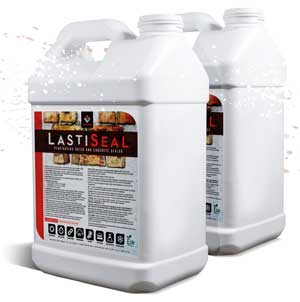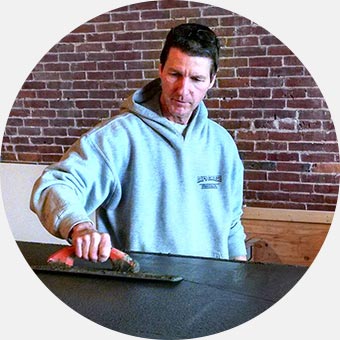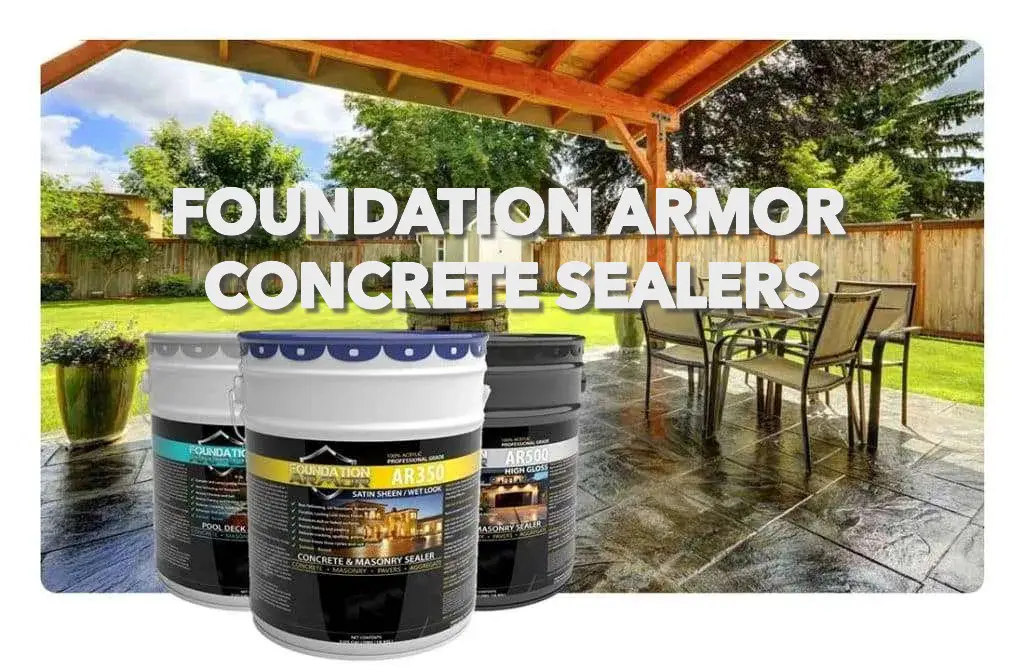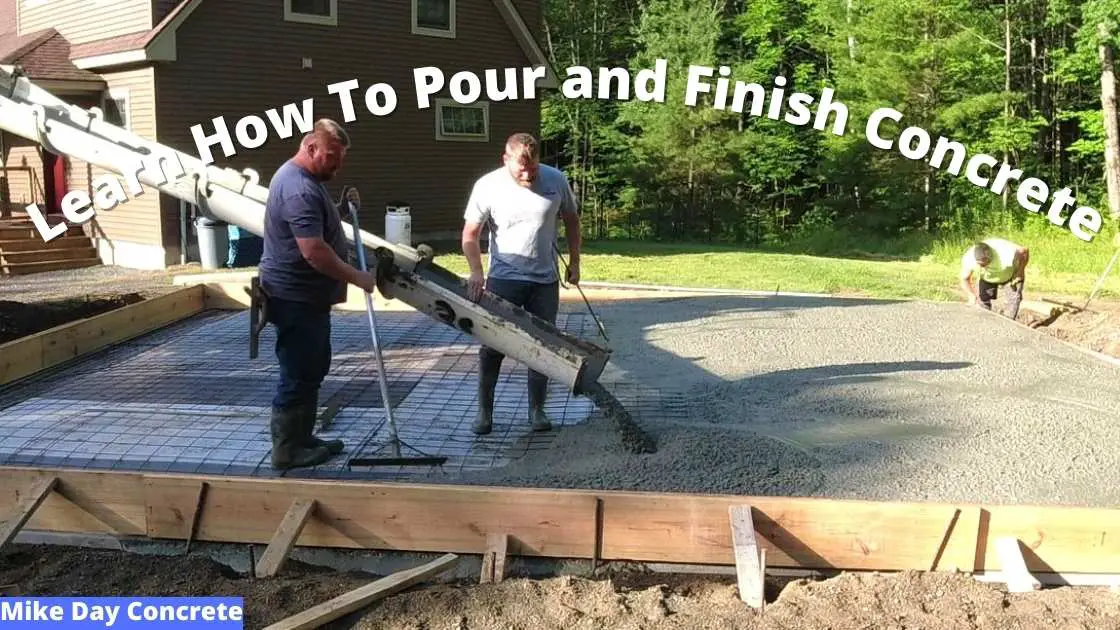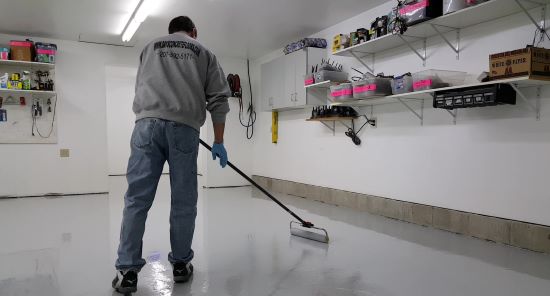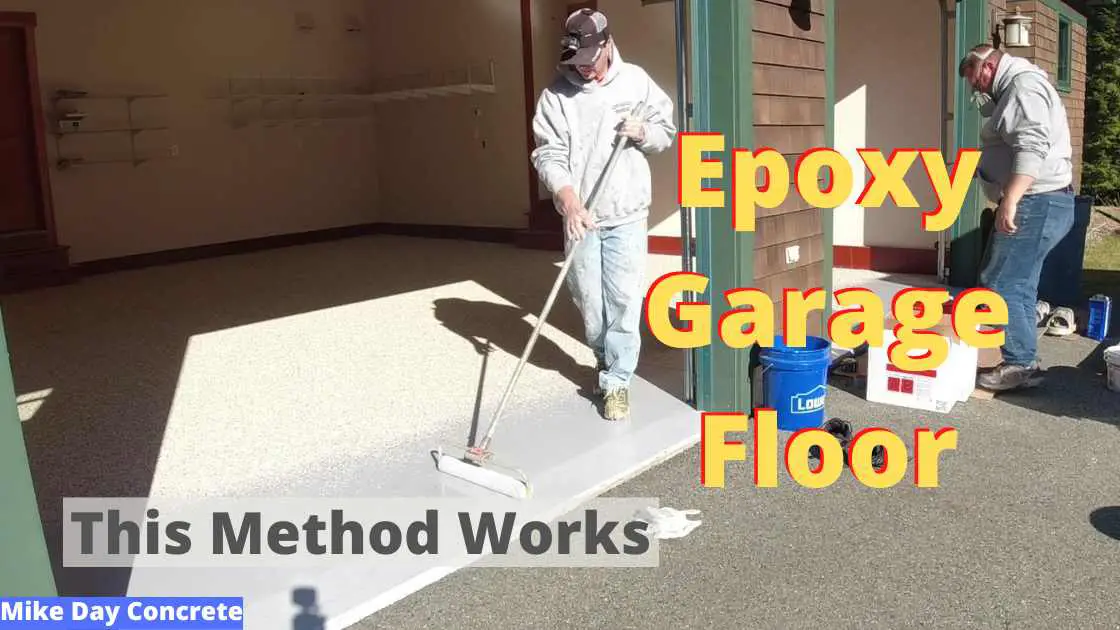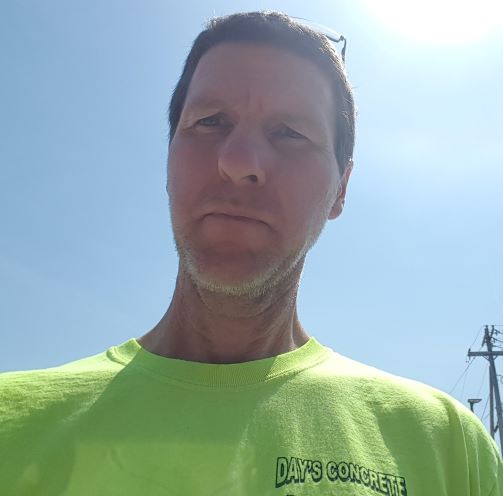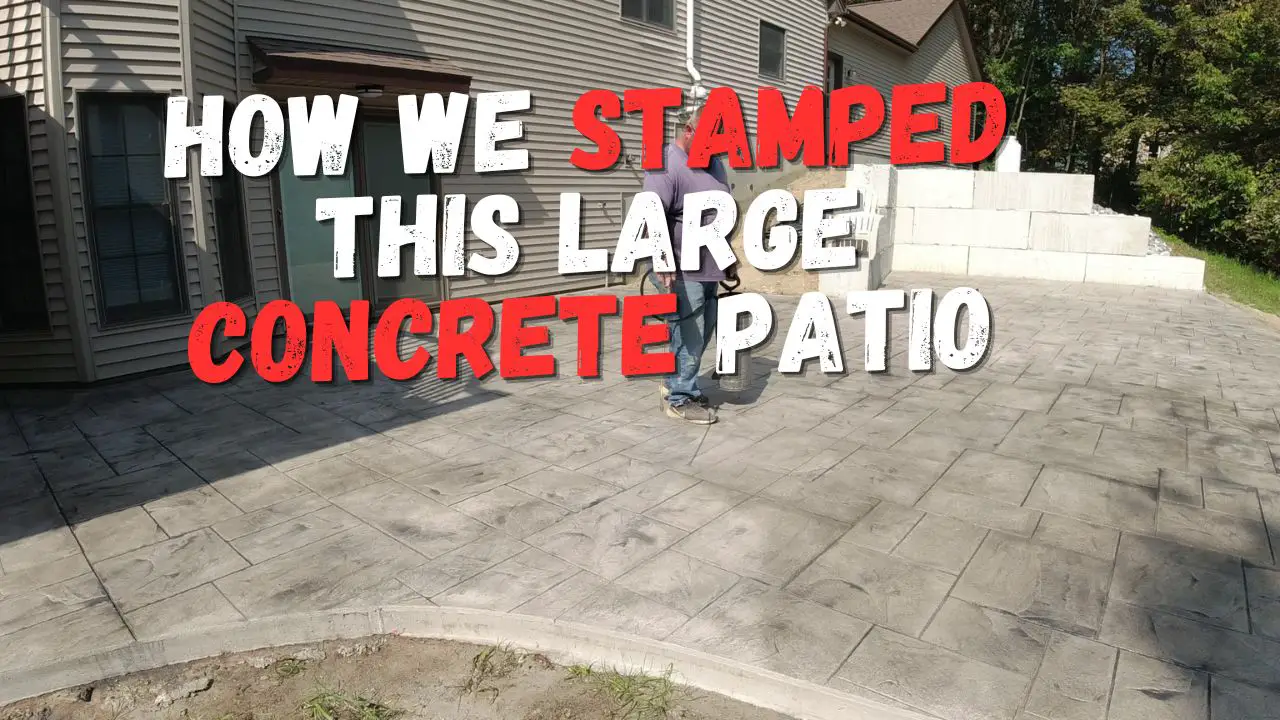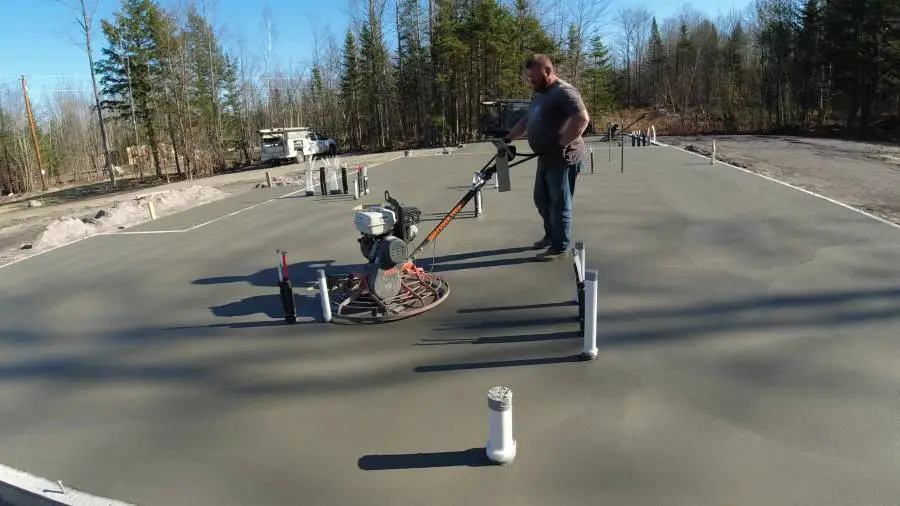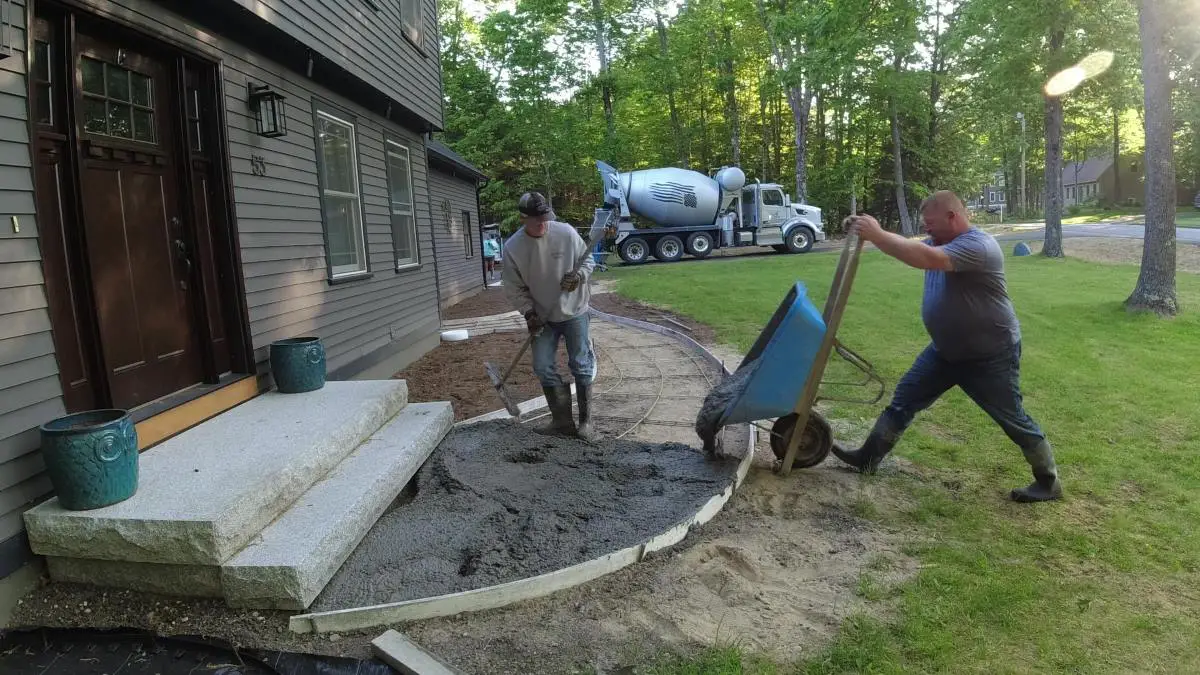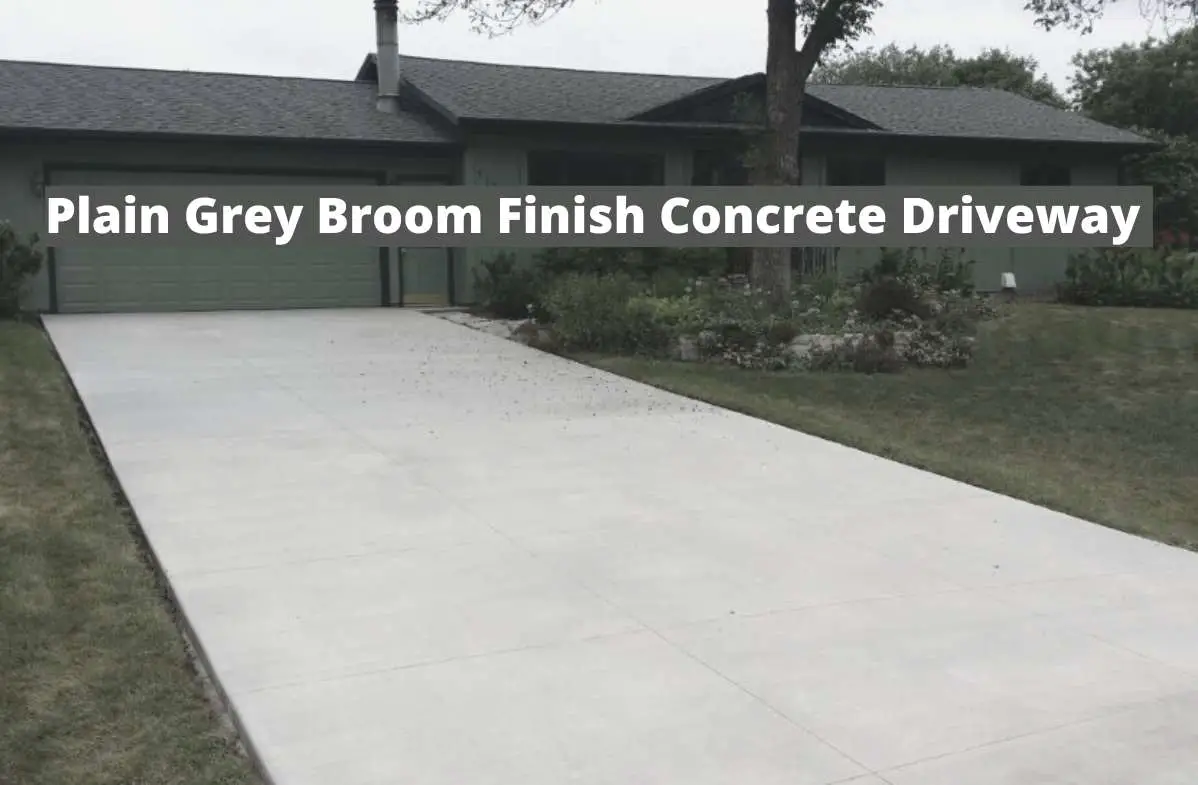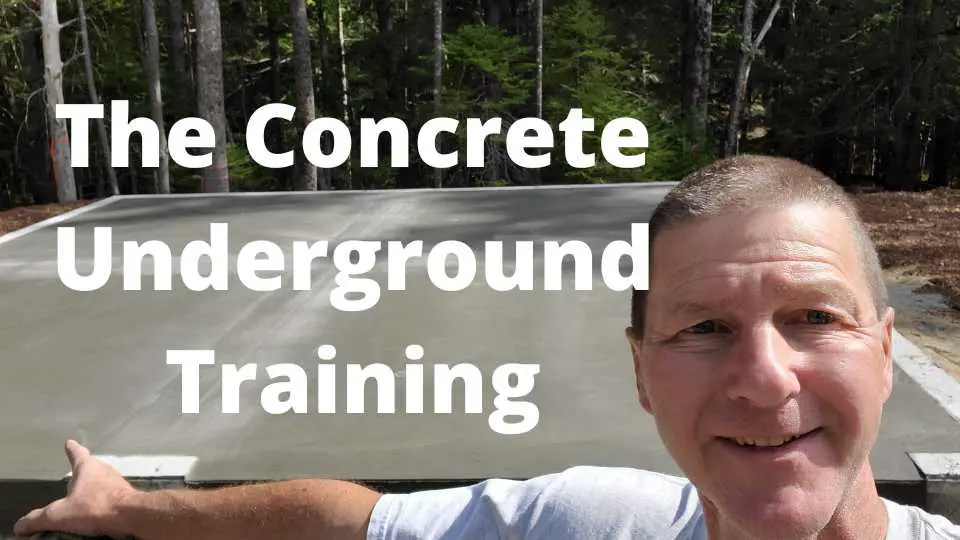Moisture Vapor Blocker
For Concrete
How to reduce or eliminate moisture vapor transmission
in concrete floors and slabs.
Use a penetrating sealer that's designed to protect your concrete and block moisture like LastiSeal.
This moisture blocking sealer will penetrate deep into the concrete and block or greatly reduce the amount of moisture vapor coming up through your concrete floor.
Always use this type of sealer before applying any paint or epoxy to your concrete floors.
You can use LastiSeal to waterproof your concrete floor before you install any type of epoxy flooring or paint.
Just clean the floor and spray on the LastiSeal using a garden pump up sprayer.
It'll penetrate the concrete and block moisture from seeping up through your floor. It works good for very old concrete floors as well as new ones.
Apply 2 coats, spraying the second one just as you see the first one starting to dry.
A moisture vapor blocker is a special type of concrete sealer.
The difference between a moisture blocking sealer and a regular concrete sealer is moisture vapor blockers deeply penetrate the capillary structure of the hardened concrete.
Basically, the sealer fills all the pores, solidifying the inner matrix of the concrete, blocking any path moisture vapor would take to escape to the surface.
If a concrete vapor barrier was correctly installed before the concrete floor was poured, there wouldn't be a need to block moisture from the surface of the concrete.
The moisture would have been cut off at the source, the sub-base.
When a vapor barrier isn't used under the concrete, the next best solution is to waterproof the concrete from the top, taking advantage of the porous sponge-like inner matrix of the concrete.
Moisture vapor blockers are designed to migrate deep into the concrete substrate and form a hygroscopic and hydrophilic crystalline material that permanently block the pores in the concrete.
The crystallization of the moisture blocker continues to fill and block the capillaries in the concrete even under constant hydrostatic pressure.
Why is it important to prevent moisture vapor transmission in concrete floors?
|
When moisture vapor escapes through the surface of the concrete it can cause a lot of problems for flooring materials that won't let the concrete breathe. |
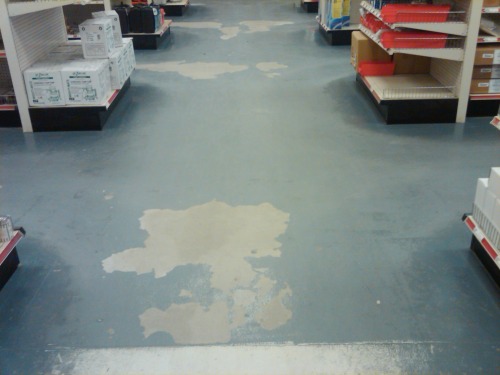 Epoxy peeling off concrete floor Epoxy peeling off concrete floor |
Flooring materials like epoxy, linoleum, glued on laminate, and wood can seal the surface causing moisture pressures to build up in the concrete.
When the pressure increases to a certain point, usually more than 3lbs per 1000 square feet in 24 hours, these flooring materials can lift, peel, blister, and buckle.
If you're thinking of applying a flooring material to your concrete floor, it's a good idea to test the concrete for moisture even if the surface looks dry. Moisture could be evaporating as soon as it reaches the surface and not be noticeable.
A simple calcium chloride test can be done to determine the rate at which moisture vapor escapes the surface of concrete floors and slabs.
Most flooring manufactures recommend moisture vapor transmission from a concrete floor be below a certain rate before their flooring materials are installed.
What can I use to block moisture vapor in my concrete floor?
The product that I have found works best to block moisture vapor in concrete floors is RadonSeal's Lastiseal deep penetrating concrete sealer
- Waterproofs, mitigates, and strengthens concrete
- Penetrates and permanently seals indoor or outdoor poured concrete and concrete blocks against water seepage
- Blocks moisture vapor
- Reduces or eliminates radon gas
- Stops hydrostatic pressure.
- Densifies and hardens concrete
- Prevents spalling, cracking, dusting
You can also use RadonSeal sealer for sealing basement walls, basement floors, slab-on-grade foundations, crawlspaces, garage floors, driveways, warehouse floors, and parking areas.
This sealer is water-based so it doesn't leave a film on the surface. It's slip-resistant and paintable, has zero VOCs, and comes with a money-back Lifetime Guarantee!
Some other benefits of using a moisture blocking concrete sealer
- Seals voids and capillaries
- Increases the adhesion of coatings and paints
- Increases surface abrasion resistance
- Increases strength
- Adds density
- Improves acid & chemical resistance
- Improves thermal resistance
- Prevents internal water migration
If you're thinking of having a coating or flooring material applied to your concrete floor or slab, ask the contractor to test the concrete for moisture vapor transmission.
It's quite easy and inexpensive to do, it might also save you from having problems down the road. If the reading comes in higher than the coating is rated for, use a moisture-vapor blocker and test the concrete again.
Better to be safe than sorry!
Some contributing factors to high moisture vapor emission rates:
- Broken or clogged drainage pipe
- Broken water pipe
- Poor exterior landscaping
- High water table
- No concrete vapor barrier.
Checking and dealing with these issues first would be a good place to start.
Return from Moisture vapor blocker to Concrete vapor barrier
Return from Moisture vapor blocker to Everything About Concrete Home Page
